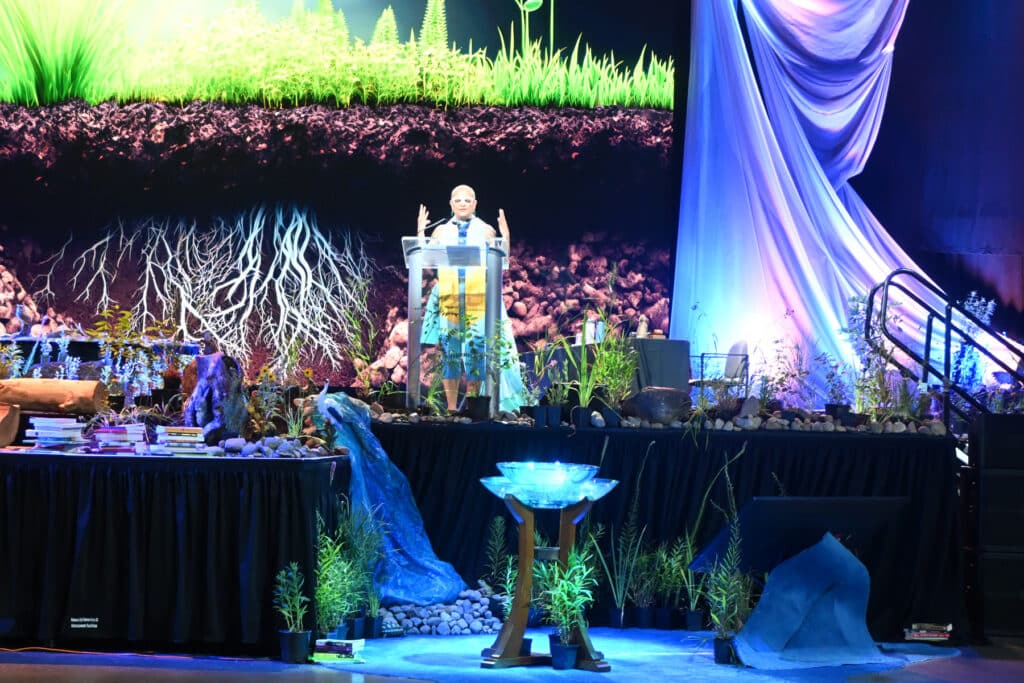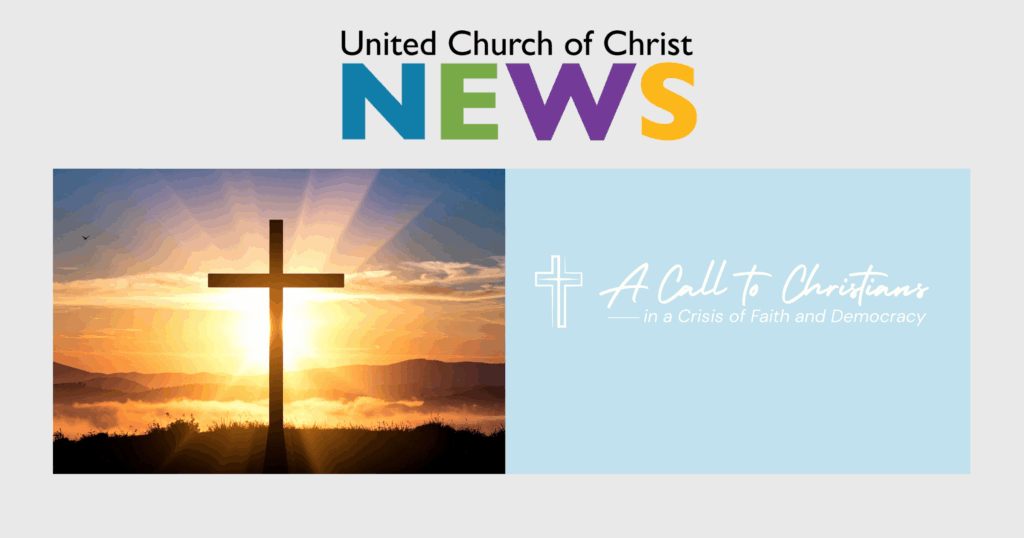Reckoning, Revival, and the Risk of Connection: A Reflection on Justice and Worship
In today’s opening worship service, the congregation was grounded in the rhythms of justice and communal confession, gathered to do more than sing and pray—to reconcile. Not just with each other, but with the land beneath us, with the histories we’ve inherited, and with the painful truth of how the churches we serve and worship in have participated in the destruction of creation.
Moments like these aren’t uncommon at General Synod—but the depth of this one lingered. Anchored in environmental justice, it invited participants to name not only their theological commitments but their complicity in the harms that often go unnamed: colonization, extraction, racialized economic disparity, and the spiritual disconnection that comes when faith is more institutional than transformational.
There was a noticeable shift in tone this General Synod: not performative lament, but participatory accountability. Not a call to neat resolutions, but an invitation to stay present in the ache.
During the service, phrases surfaced that have broader implications for the church in this moment:
“One ounce of truth is like a ripple in a pond.”
“Persistence and perseverance are appreciated in the slow race of working toward justice.”
“Jesus didn’t build an institution—he built a movement.”
These weren’t just poetic sentiments. They were, in many ways, indictments of how easily churches can fall into survival mode—protecting structures, clinging to safety, and avoiding the risk of disruption that justice requires. But they were also invitations. Because truth-telling, even when uncomfortable, is a form of love.
What emerged was not a desire to be made to feel good, but to feel deeply—to be reconnected to the pulse of prophetic Christianity. That includes naming the deep disappointment many feel with our country, our institutions, and yes, even our churches. It includes the lived reality of chronic pain, mental illness, and the kind of depression that doesn’t resolve with a five-minute meditation or a well-placed Scripture quote. It includes watching war destroy children abroad while anti-humanitarian legislation is passed at home, and asking, with trembling hope, “If God is still speaking…what is God saying?”
What preacher Rev. Marilyn Pagan Banks named is that this is not the time for shallow unity or vague spirituality. It is a time for embodied connection.
Her full remarks will be available soon.
Content on ucc.org is copyrighted by the National Setting of the United Church of Christ and may be only shared according to the guidelines outlined here.
Related News
UCC GMP joins other faith leaders in endorsing ‘Call to Christians’ letter
The Rev. Karen Georgia Thompson, United Church of Christ General Minister and President/CEO...
Read MoreAshes to Ashes
Some weeks more than others the sense that the “world is burning” is hard to shake. The...
Read MoreUnited Church Homes receives $15,000 in grants to expand NaviGuide services for the elderly and their families
United Church Homes (UCH), a national nonprofit senior living organization headquartered in...
Read More


